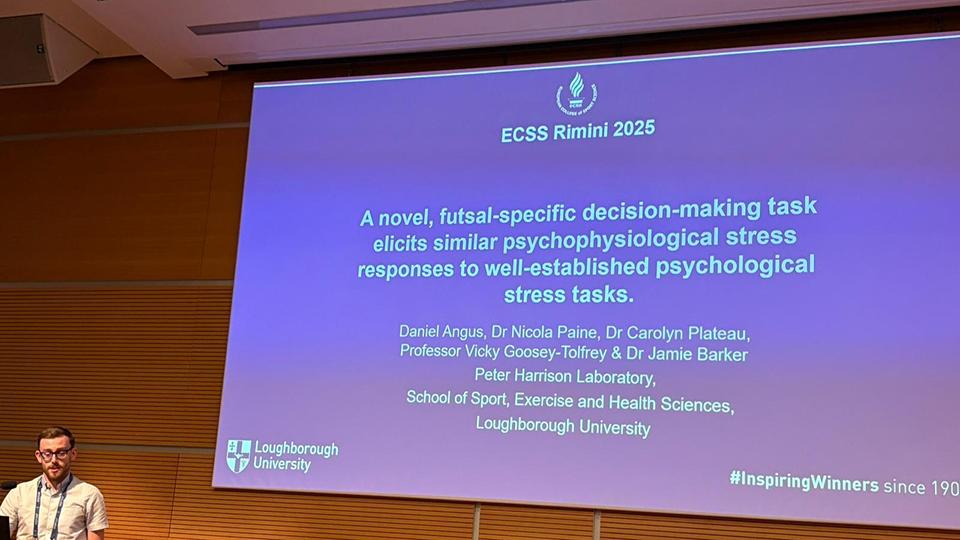One of our Doctoral Researchers, Dan Angus recently travelled to Rimini, Italy to present some his PhD work at the 30th Annual Congress for the ECSS. His presentation titled ‘A novel futsal-specific decision-making task elicits similar psychophysiological stress responses to well established psychological stress tasks’ was shortlisted for the Young Investigators Award meaning Dan was required to complete a 10-minute presentation, followed by 5 minutes of questions from members representing the ECSS Scientific Committee and Board.
His research aimed to develop a video-based decision-making task which could elicit a psychophysiological stress response in footballers and futsal players alike. As multiple impairment groups from elite para-football use futsal as their format of the game, it is hoped that this test can be used to assess the relationship between stress and decision-making in more detail. However, the test first needed to be validated before this work can take place.
Dan identified that the novel task did elicit a psychophysiological stress response as evidenced by increases in blood pressure and self-report indices. Likewise, these responses were similar to another well-established stress task in the Stroop Colour Word Test. He now looks forward to building on the task to look at the topic of stress appraisal and how this can be manipulated to influence performance.
When asked for a comment on the conference itself, Dan had the following to say:
“It was a great opportunity for me to present my work at ECSS, my first international conference. I thoroughly enjoyed watching some great presentations, which helped expand my knowledge base. Given the scale of the conference, it was also a fantastic chance to network with other academics - especially those with a para-sport focus to their work. I look forward to presenting more work in the future and thank the FA and Peter Harrison Laboratory for their support”.
For further details on Dan’s research, please see his page on the University website. This can be accessed at: Daniel Angus | School of Sport, Exercise and Health Sciences | Loughborough University
